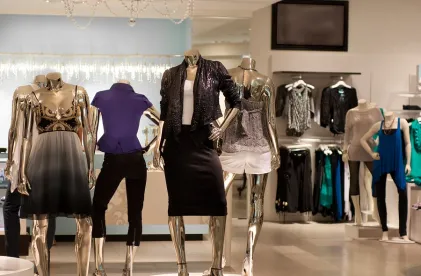Judge Vernon Broderick of the U.S. District Court for the Southern District of New York recently decided a motion to dismiss by luxury consignment goods reseller The RealReal (“TRR”) in an action brought by famous French brand Chanel. Chanel v. The Realreal, 2020 WL 1503422 (S.D.N.Y. Mar. 30, 2020). In addition to the false advertising claims discussed below, Judge Broderick’s decision also addressed Chanel’s trademark infringement and counterfeiting claims. This post focuses on the false advertising portion of the decision.
As our readers surely know, Chanel is a fashion company that sells luxury bags, shoes, clothing, jewelry, sunglasses, accessories, and beauty products worldwide. Chanel does not sell secondhand or vintage Chanel goods. TRR, however, purports to do just that. TRR is a retailer that specializes in luxury consignment, offering ostensibly genuine secondhand products from many luxury brands, including Chanel. TRR touts its business as having “developed the most rigorous authentication process in the marketplace,” and represents that it is “the only resale company in the world that authenticates every single item sold.” Chanel does not sell to or authorize sales of its products through TRR and does not itself authenticate TRR’s inventory of Chanel-branded products.
Chanel alleged that despite TRR’s claim that it “ensure[s] that every item on [its site] is 100% the real thing,” TRR has in fact marketed and sold counterfeit Chanel goods. Chanel alleged that it performed an investigation that revealed TRR had sold “at least seven counterfeit Chanel handbags” that had been held out as genuine and authentic.
In its decision, the court held that Chanel had plausibly alleged that TRR’s advertising regarding the authenticity of the products it sells was literally false or, in the alternative, impliedly false and likely to mislead or confuse customers.
The court found that statements like “we ensure that every item on The RealReal is 100% the real thing” are “an unambiguous representation of fact that all of the products advertised and sold by The RealReal are 100% authentic.” The court also noted that, while not raised by the parties, TRR’s assertion that it “authenticates every single item sold” is also a representation of fact that all products are authentic, based on the normal definition of the word. Importantly, TRR did not acknowledge the existence, or even the possibility, of counterfeit products in its marketplace on its website or in its terms of service. Given that TRR offered no disclaimer to that effect anywhere, Chanel sufficiently alleged that such representations are literally false by citing just seven examples of counterfeits that TRR had sold.
The court relied heavily on Tiffany v. eBay, in which the Second Circuit made clear that “the law prohibits an advertisement that implies that all of the goods offered on a defendant’s website are genuine when in fact . . . a sizeable proportion of them are not.” 600 F.3d 93, 114 (2d Cir. 2010). Judge Broderick acknowledged that Tiffany did not define what constitutes a “sizeable proportion,” and that the record did not specify the volume of products Chanel reviewed during its investigation, so it remains to be seen whether Chanel can prove that a sizeable number or percentage of TRR’s Chanel-branded goods are not genuine. However, this decision serves as a cautionary tale to advertisers that a claim alleging even a small deviation from “100%” advertising statements may be viable, at least at the motion to dismiss stage.





 />i
/>i

